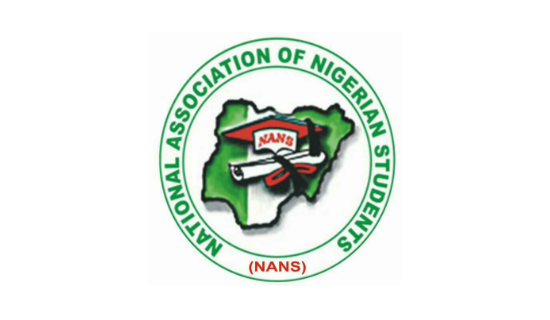By John Ogunsemore
The National Association of Nigerian Students (NANS) has strongly rejected the Federal Government’s latest increase in passport fees, describing it as an undue burden on students and citizens pursuing education and business abroad.
In a press statement issued on Friday, NANS Vice President for External Affairs, Comrade Kenechukwu Aneke, demanded that the government reconsider the hike, which raises the cost of a 32-page passport to N100,000 and a 64-page passport to N200,000 for applicants within Nigeria.
The new fees, announced by the Nigeria Immigration Service (NIS) on Thursday, August 28, are set to take effect on September 1, 2025.
The NIS defended the fee adjustment as necessary to cover rising production costs.
“Nigerians who live in diaspora are the ones subsidising the passport cost for Nigerians who are based in Nigeria,” Aneke stated, noting that diaspora applicants pay $150 for a 32-page booklet (approximately N230,440 at current exchange rates) and $230 for a 64-page booklet (about N353,337).
He highlighted that these diaspora fees remain unchanged under the new policy.
Aneke emphasised that this marks the third fee increment in just two years, following previous adjustments in 2023 and August 2024. In the 2024 hike, the 32-page booklet rose from N35,000 to N50,000, while the 64-page version increased from N70,000 to N100,000.
He argued that the repeated increases will limit students’ access to international travel and education opportunities, hindering their ability to “explore the world and compete globally.”
As the vice president for external affairs of NANS, the largest student movement in sub-Saharan Africa, Aneke urged the government to treat the issue as an urgent problem affecting both students and the broader citizenry.
He said, “We urge the Federal Government to review this increment and reassess operational costs to ensure the increment is justified and transparent, reducing the burden on citizens.
“By making passport services affordable for all citizens, the government can promote accessibility, equality, and national development.
“In conclusion, we implore the Federal Government to reconsider this increment and find a better solution that balances quality service delivery with affordability and accessibility.
“With a nuanced approach, we are confident that the government can ensure passport services are accessible to Nigerian students and citizens, regardless of their background.”


